When Will Disney World Park Reservations End?
“When will Walt Disney World stop requiring theme park reservations?” for Annual Passholders and regular guests is a common question among guests frustrated about the extra step to visit Magic Kingdom, Hollywood Studios, EPCOT, and Animal Kingdom. This post discusses the end of reservations, reasons for restrictions, and crowd control goals. (Updated January 9, 2024.)
Let’s start with the very good news, which is that the vast majority of regular guests no longer need theme park reservations when visiting Walt Disney World. Starting with visits on January 9, 2024, theme park reservations are no longer be required for date-based tickets. A date-based ticket requires you to choose a start date when you purchase. For other admission types, theme park reservations may be required.
If you’re a regular tourist who isn’t an Annual Passholder, there’s about a 98% chance you will not need park reservations for Walt Disney World anymore. Pretty much all vacation packages booked through DisneyWorld.com or travel agents include date-based tickets, with the only notable exclusions being student groups, tour groups, convention guests, youth sport event guests, military tickets, and (again) Annual Passes. The rest of this post is irrelevant to you–stop reading, because the answer for you to the titular question is RIGHT NOW.
If you’re not an Annual Passholder or part of one of those excluded groups, you also may want to stop reading, because you may not like what we have to say about the future of the Disney Park Pass theme park reservation system for booking entry to Magic Kingdom, EPCOT, Hollywood Studios, and Animal Kingdom.
As you’re no doubt aware, this system was originally introduced due to the parks operating at significantly reduced capacity when the parks reopened. At that time, attendance was capped at ~20% of normal levels, a number that gradually increased to 35% the following spring.
Health safety protocol are now gone entirely and have been for a while, staffing shortages are mostly a thing of the past, and many Annual Passholders and other ticket types are wondering when the reservation system will also be retired for them. That’s what this post addresses…
When it comes to the U.S. Military Salute and other aforementioned regular ticket types (youth teams doing events at ESPN Wide World of Sports, Disney Meetings & Events, tour groups, and other bulk tickets), our expectation is that theme park reservations will stick around for the remainder of 2024.
That’s partly a matter of Walt Disney World signaling as much with the current reservations calendar running through January 18, 2025. It’s also partly a matter of assessing crowd dynamics and demand absent the Park Pass system for all other regular ticket types. Once park management knows it’s not going to be a problem to drop reservations for the rest of these groups, they’ll do so.
There’s actually an incentive for them to do so, as the Disney Park Pass infrastructure for regular ticket types differs slightly from the system for Annual Passholders. So keeping it around incurs maintenance and support costs, and ends up being a hassle that takes time for Cast Members when there are inevitably issues. If there’s no need for these groups to have reservations, keeping the system around is counterproductive. It could certainly happen before that January 18, 2025 date–but we’ve seen how cautious and slow Walt Disney World has been in undoing post reopening changes.
As for Annual Passholders, let’s start with the good news, which is that Walt Disney World is introducing “good-to-go days” for Annual Passholders and Cast Members. On these “good-to-go days,” Annual Passholders and Cast Members may visit theme parks without needing a park reservation.
The theme park reservation calendar, Annual Passholder admissions calendar and My Disney Experience app will show days that are good-to-go. The first good-to-go days will be added to the calendars starting January 11, 2024. Good-to-go days will take the place of bonus reservations, and like bonus reservations, they will be added periodically and may be released days or weeks in advance.
If an Annual Passholder has an upcoming theme park reservation that becomes a good-to-go day, the reservation will be removed and no longer count against their maximum reservation hold, but they will still be able to view their previous reservation in the My Plans section in My Disney Experience.
Our expectation is that a majority of dates in 2024 end up being good-to-go at Walt Disney World. In all likelihood, Walt Disney World will start slowly and scale up, adding a handful of winter off-season dates on January 11, 2024 and seeing how that goes. If the parks are not inundated and overwhelmed by reservationless APs (and they won’t be), they will add more and more good-to-go dates to the calendar.
We’d be willing to bet that by the time late April 2024 rolls around, at least half the dates in early summer will be good-to-go for Annual Passholders. It wouldn’t be the least bit surprising if every single day is good-to-go for Animal Kingdom and EPCOT, and reservations are only necessary for Magic Kingdom and Disney’s Hollywood Studios. By late summer/early fall, it wouldn’t be surprising if between 75% and all dates are good-to-go for all parks.
During the second half of the year, it’ll probably be easier to list the dates that are not good-to-go rather than the ones that are. For that, our preliminary prediction would be that reservations will be required for only (roughly) the ‘worst’ dates in our list of the 10 Best and 10 Worst Weeks to Visit Walt Disney World in 2024 & 2025.
In addition to this, Annual Passholders are able to enter the theme parks after 2 p.m. without needing to make a reservation, regardless of whether or not it’s a good-to-go day. The exceptions to that is Magic Kingdom on weekends, but it’s still a pretty big deal–especially for APs who previously enjoyed being able to do a spontaneous afternoon or evening visit after work. Suffice to say, a lot of the normal use cases for local Walt Disney World Annual Passholders will not require reservations in 2024.
Finally, there have been a lot of questions about Annual Passholders with resort reservations, which should be their own distinct category that has been favored up until now. Thus far in January 2024, there have been no changes for this group. Our guess is that this is an oversight–that APs with on-site resort reservations have been lost in the shuffle, for lack of a better term.
It’s also possible that there are backend IT limitations preventing Disney from dropping reservations for this group without doing manual overrides, since (as noted above) the systems are slightly different. We would like to think that Walt Disney World will quickly address this, and on-site resort guests who are also Annual Passholders won’t need theme park reservations in the very near future.
Honestly, though, we have no clue. It’s possible this would necessitate too much additional work for Disney IT or the good-to-go days plus extra reservations allotted to on-site Annual Passholders is deemed sufficient at addressing this. And for practical purposes, it probably is. This is one scenario where we wouldn’t be surprised if park reservations are dropped for on-site APs next week or never. Obviously two extremes, both of which are plausible from our perspective. Not very helpful, we know. Sorry.
As a general matter, theme park reservations are likely here to stay for Cast Members and Annual Passholders in some form or fashion. For what it’s worth, this has been our prediction since the system was implemented in 2020–that it would eventually be retired for tourists but stick around to some degree for CMs and APs. As it turns out, we were correct.
So our prediction now is that Cast Members and Annual Passholders will still be making theme park reservations in 2025 and probably 2026. Our past predictions weren’t exactly bold and neither is our current one. The basis for this is simple, and predates the 2020 closure.
Back in 2019, current Parks Chairman Josh D’Amaro was the head of Disneyland when the Flex Pass–an Annual Pass with some dates that required reservations–debuted there; D’Amaro was reportedly an advocate for the reservation system for Cast Members. The 2024 system of a blockout calendar paired with good-to-go dates is literally identical to the Flex Pass (right down to the “good-to-go” term!). Suffice to say, this is something that had been in the works at Disney for a while.
Given the introduction of the Flex Pass at Disneyland, overall increases in attendance in early 2020, and population explosion in Central Florida, theme park reservations were an inevitability for Walt Disney World APs and CMs. Even if the closure and everything else never happened, it’s highly likely that Cast Members and at least some tiers of Annual Passes would be required to make park reservations in 2024. It might not look like the current system, but it wouldn’t be like 2019, either.
Retaining reservations for APs and CMs gives Disney control over the attendance mix, and allows the company to prioritize tourists who spend more per visit on average. Although Disney wants Annual Passholders and Cast Members to visit–and spend money–when there’s excess capacity, the circumstances are different when the parks are busier.
Even if there is a more pronounced winter off-season slowdown, the economy enters a recession, or pent-up demand exhausts itself, it’s still likely that the peak weeks around Thanksgiving, Christmas, and New Year’s Eve will continue to be very busy. It thus makes sense that Walt Disney World would want to prioritize resort guests and other tourists and not fill the parks with Annual Passholders at the expense of more lucrative vacationers during busier dates.
Hence the compromise of no reservations on slower days or after 2 pm most days for APs (and still subject to blockouts–which includes much of the holiday season for all tiers but the Incredi-Pass). That’s also why we do not expect park reservations to be retired for Annual Passes in 2025 and probably not 2026.
What’s more likely than reservations being totally retired for all Annual Passholders is the introduction of a new top-tier of Annual Pass that doesn’t require reservations and has no blockout dates. The kind of AP that, if you’re wondering how much it would cost, is too expensive for you.
As for the why of this, leadership has been pretty clear. During several interviews about the future of the theme parks over the course of the last two years, Josh D’Amaro has shared a similar perspective, indicating that Walt Disney World is “choreographing” the guest experience, pushing technology in a way that Disney has wanted to for a long time. He has pointed to the Disney Park Pass reservation system, as well as Mobile Order, contactless payment, and various virtual queues.
D’Amaro has noted that these technologies are leading to better Cast Member and guest experiences, and has said that many are probably here to stay. In past interviews, D’Amaro has not said with any specificity which components will stick around. His comments have been more to tout Walt Disney World’s use of technology, and indicate they’ll continue to do so going forward. Which should be obvious.
Disney’s desire to better leverage technology should not come as a surprise. The multi-billion dollar NextGen initiative—including My Disney Experience, FastPass+, MagicBands, and interactive queues—was envisioned as a way for Walt Disney World to operate more efficiently. There were grandiose plans for how the project would offer Disney the data necessary to streamline operations, deploy on-demand entertainment, manage staffing, and effectively utilize other resources.
Aside from the guest-facing components like FastPass+ and MagicBands, almost none of the big goals that justified the colossal investment were realized. In large part, this is why My Disney Experience wasn’t ported to other parks around the globe; instead those parks cherry-picked various aspects of the system to build their own, stripped-down incarnations. (See “The Messy Business of Reinventing Happiness” and “Behind the Scenes at Disney As it Purged a Favorite Son” if you’re interested in more on the trials and tribulations of NextGen.)
The lesson to be learned from the goals of NextGen as imagined versus what came to fruition is that Disney’s plans don’t always come true. While executives salivate at the prospect of leveraging big data and analytics to decrease staffing and achieve more efficient operations, all of this only works to the extent that there’s guest buy-in. (Not to mention the tech “playing nice” with Walt Disney World’s legacy IT–something that still hasn’t totally happened with the NextGen additions.)
Quite simply, Walt Disney World cannot unilaterally push through more stringent and regimented planning “resources” without regard for the guest experience and satisfaction. While FastPass+ was initially met with skepticism by long-time fans (something true of literally any change at Walt Disney World), it was eventually embraced by guests. Some still criticized it or expressed a preference for paper FastPasses or no virtual queues at all, but it was sufficiently popular.
It’s also worth emphasizing that My Disney Experience rolled out at a time when Walt Disney World’s attendance had started to soar, giving the company some latitude in making decisions not warmly embraced by guests.
The circumstances were very similar when Disney Park Pass was first introduced…but not anymore. In his interviews during 2021-2022, D’Amaro acknowledged that Walt Disney World was benefitting from pent-up demand. That ceased to be the case about a year ago, and Disney is now seeing the backside of revenge travel. Accordingly, the company now needs to be more responsive to the guest experience and satisfaction.
Disney Park Pass is viewed as an impediment and another reservation to make. It creates uncertainty, headaches, and many guests blame the reservation system for planning problems or rigidity in their vacations. Some have been shut out of visiting entirely due to Park Pass, and have an unfavorable opinion of it as a result.
In the grand scheme of Walt Disney World “approval ratings,” theme park reservations fall somewhere between Stitch Ate the Page! and Stitch’s Great Escape. So it makes complete sense that, as pent-up demand is exhausted and the system has outlived its usefulness for tourists, Walt Disney World would remove this friction for most guests.
For those concerned that Walt Disney World won’t be able to accurately forecast attendance without park reservations, don’t be.
From an efficiency and resource allocation perspective, Walt Disney World should already be able to pretty accurately forecast tourist attendance thanks to both hotel occupancy rates and the date-based theme park ticket system. In fact, it’s likely that the latter system could be tweaked slightly to offer Disney exactly the info it would like without introducing even more friction and unnecessary hoops to the process.
A Walt Disney World vacation is already needlessly complicated and convoluted (even if many fans enjoy the planning, that’s not true of casual guests who find it overwhelming), so it behooves Disney to simplify the process where possible. In short, it’s entirely possible to achieve the same gains among tourists without Park Pass.
Ultimately, that’s a long-winded explanation for why Disney Park Pass existed in the first place and why it has now been retired for most regular single and multi-day tickets. From a resource allocation perspective, the theme park reservation system already offers little advantage over what already exists–it’s just extra friction in an already complicated vacation planning process.
By contrast, there’s no end date in sight for Annual Passholders needing to make reservations. Personally, as an AP, I’m expecting to be required to make reservations during weeks when crowd levels are forecast to be 8/10 or above for the rest of my days visiting Walt Disney World. Good-to-go days and no reservations after 2 p.m. are welcome relaxations, but we don’t expect anything beyond those changes. (We hesitate to say reservations will be “permanent” for APs because a recession or economic downturn could result in Disney dropping the reservation system for all in an attempt to lure back APs who hate park reservations.)
Honestly, so long as you’re not an out-of-state Annual Passholder (whomp whomp) who visits during busier times of year, it’s tough to construe the current compromise approach as of 2024 as a negative. For regular tourists, this is a “best of both worlds” solution. By retaining park reservations to some extent for Annual Passholders and Cast Members, it gives the company control over crowd distribution, at least to a degree. So you’ll continue to benefit from that if visiting during busier seasons. By dropping reservations for everyone else, it restores spontaneity.
Planning a Walt Disney World trip? Learn about hotels on our Walt Disney World Hotels Reviews page. For where to eat, read our Walt Disney World Restaurant Reviews. To save money on tickets or determine which type to buy, read our Tips for Saving Money on Walt Disney World Tickets post. Our What to Pack for Disney Trips post takes a unique look at clever items to take. For what to do and when to do it, our Walt Disney World Ride Guides will help. For comprehensive advice, the best place to start is our Walt Disney World Trip Planning Guide for everything you need to know!
YOUR THOUGHTS
Do you expect the Disney Park Pass reservation system to be retired at some point, or continue forever? Think Walt Disney World regrets requiring resort guests and theme park ticket holders to use Park Pass? Any questions we can help you answer? Hearing your feedback–even when you disagree with us–is both interesting to us and helpful to other readers, so please share your thoughts below in the comments!
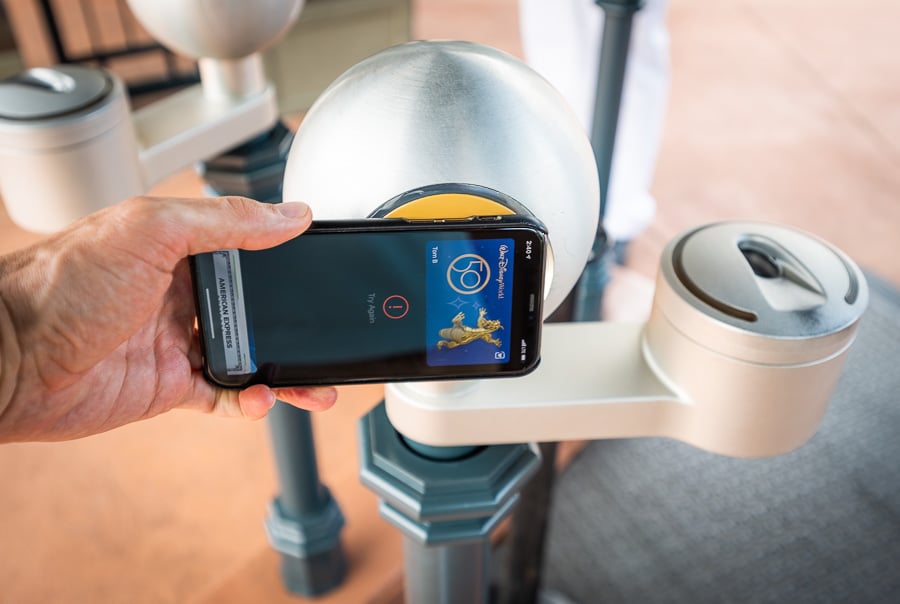
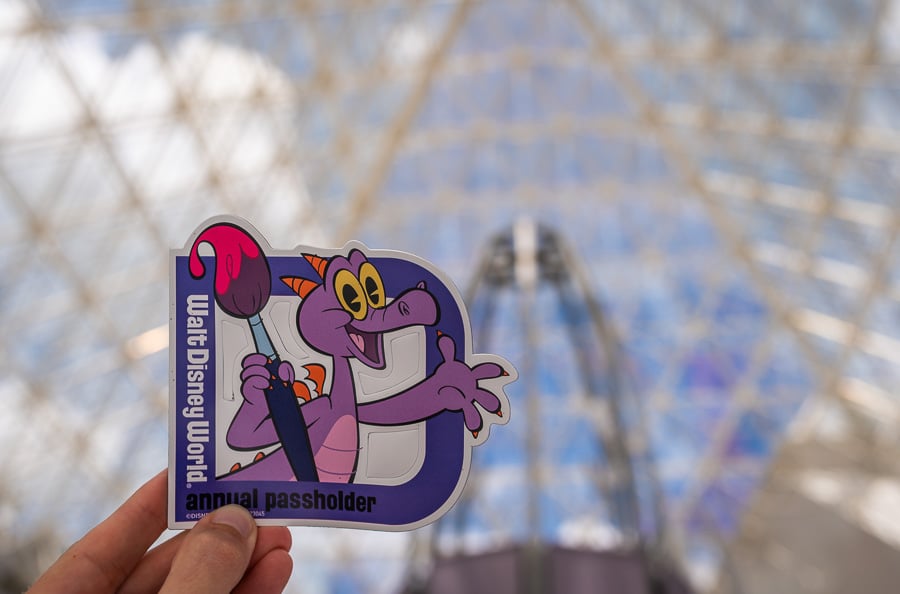
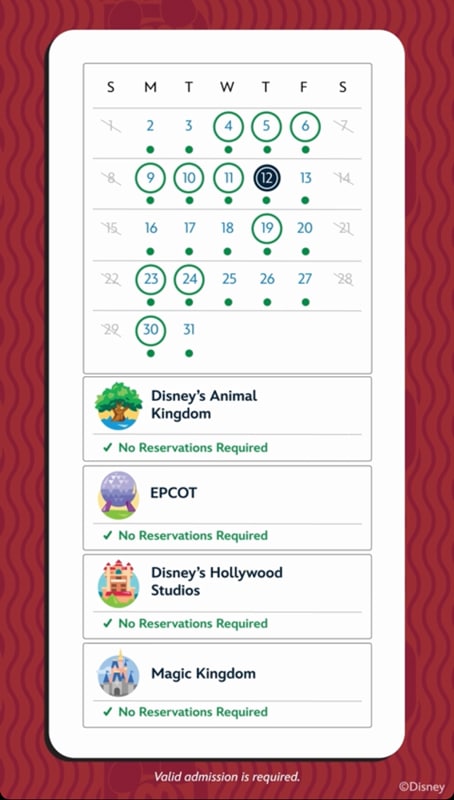
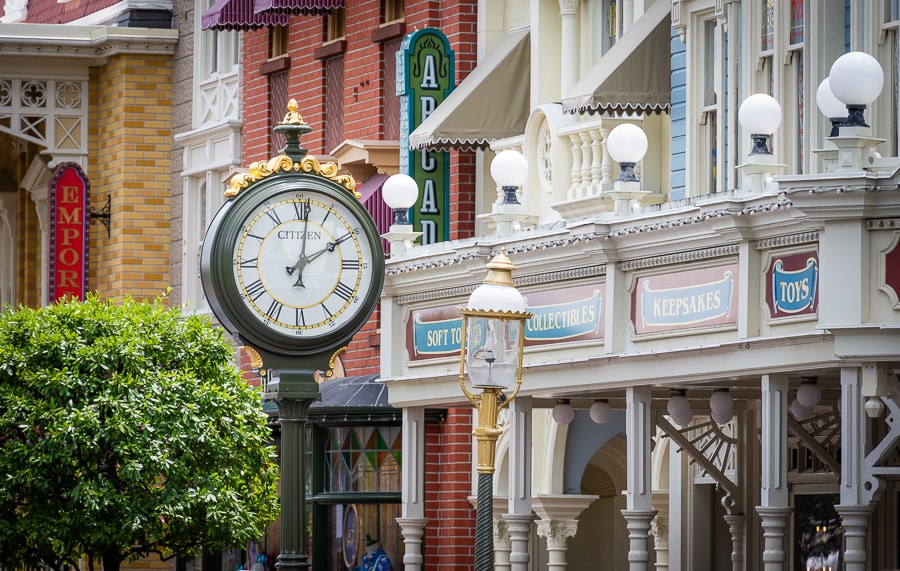
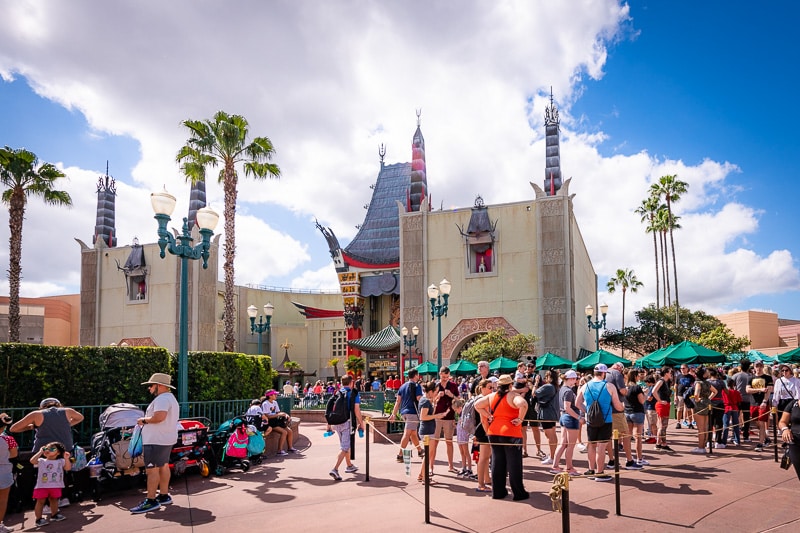
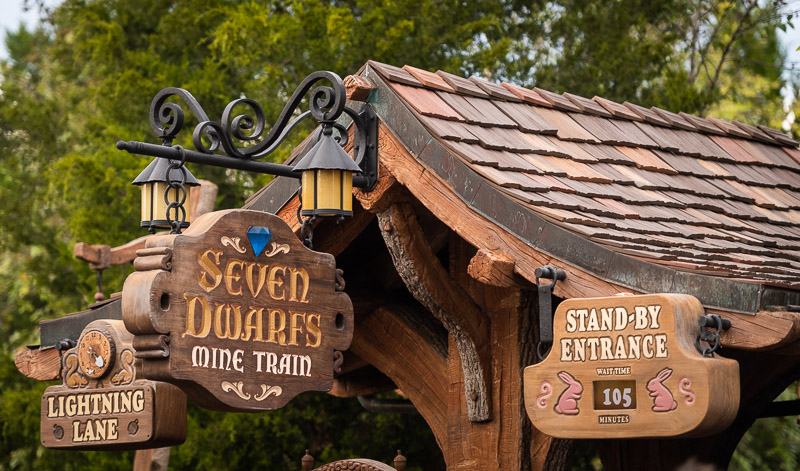
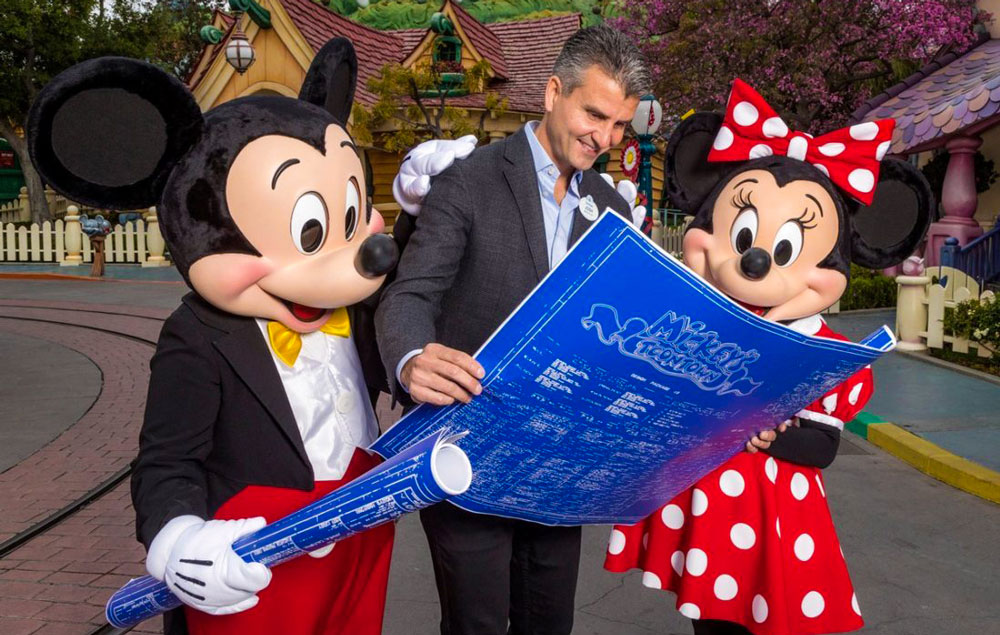
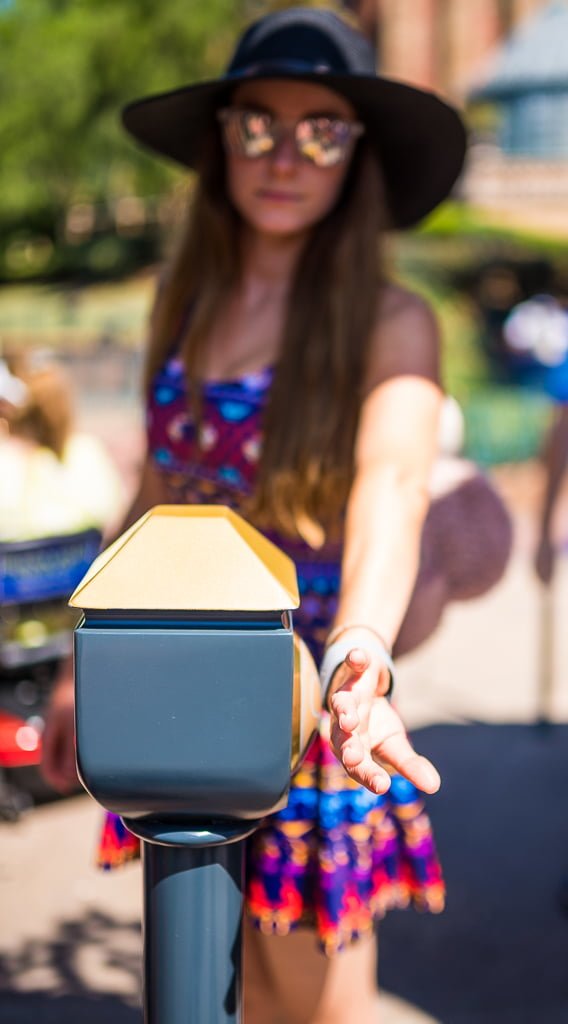
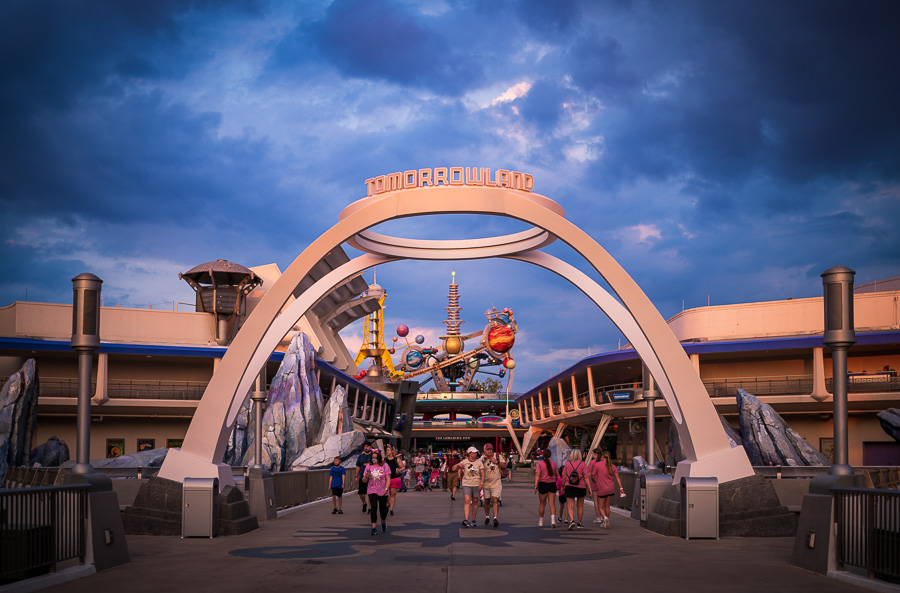
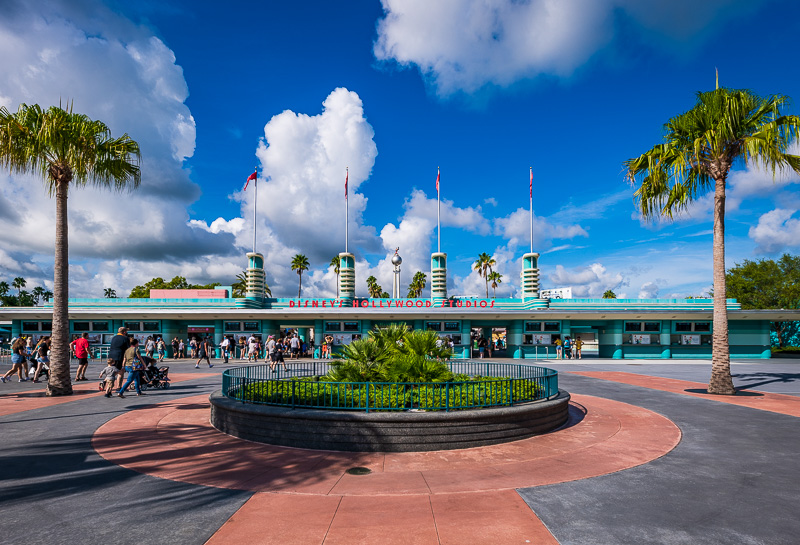
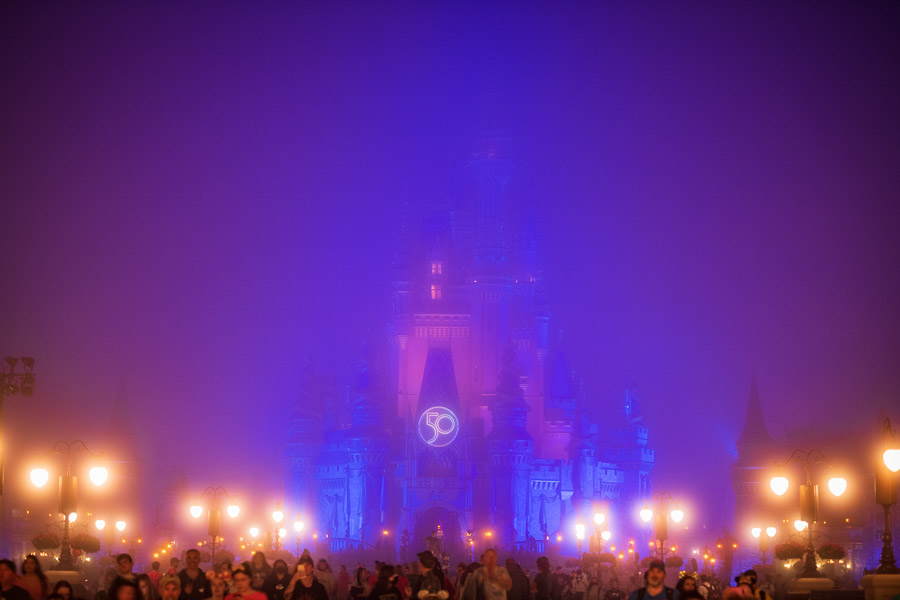
I detest the park pass system for multiple reasons.
One of the biggest problems I’ve run into is when members of our parties have different admission methods.
I was helping my son and his friend who stayed one night at Saratoga.
My son had an AP, his friend had a park hopper ticket. It didn’t matter that they were both resort guests I could only get one of them a pass to one park and the other only Epcot available. They eventually chose to start at Epcot and hop later to the other parks.
It was a hot mess.
And there is nothing more insane than selling an on property hotel room to guests and then them not being able to access any park they want.
And why the crazy of having to tap into your scheduled park to then turn around to hop to the next if it’s after “hop” time?!
It’s a ridiculous and completely unnecessary system. Disney already has all the info they need to plan for managing crowds, after being open for 50 years. Having an indicator in MDE that shows you current park allowable crowd levels for the day and likelihood of being able to get into that park would be simpler and so much better.
I wish they would stop the 2pm park hopping rule. I remember starting at Hollywood Studios to get a boarding group, then going to Epcot in the morning to enjoy a few hours at the art festival before going back to Hollywood for our evening. I miss the freedom to switch parks when I want. Any rumors of doing away with the restrictions on park hopping?
Disney is a pathetic shell of it’s former self. I have sold my shares of disney and will not return to any disney property until this travesty has ended.
I don’t blame you. I don’t live far from the California Disneyland, but I rather travel the world and the country than go to Disneyland.
Tom, I think you really should do a summary at the end of your articles with bullet points. I understand you’re a lawyer, at least I thought you mentioned that once and we all know that lawyers like long “briefs.” Sometimes, I forgot what I read at the beginning by the time I get to the end. 🙂
Have 44 days left on my Disneyland Magic Key pass and I haven’t heard anything from Disney about renewing …….
Tom , have you heard anything ???
This narrows down on the fly planning even more. Of the 3 trips we’ve taken to DW, the most enjoyable one was our last where we could walk to Epcot in the AM or evening for a quick breakfast or dinner with our park hoppers. We haven’t been in 3 years and I was really excited to plan a trip for next year but now that excitement has waned in the face of rising costs of pretty much everything and these restrictions. Pricing the same vacation from 3 years ago is madness. Almost $3k more. As much as we all enjoyed Disney, I cannot justify that price. We could take two trips to Europe for that price. And probably will instead. 😐
You should visit Europe! WDW in 2022 and likely 2023 is just a zoo. I recently went to ireland stayed at nice hotels, flew Premium Economy and it was significantly cheaper than a week at WDW. I am taking a break from WDW in 2023, banking some DVC points and hope the madness calms down a bit. Even airfare to MCO from my area is insane ($700 from the east coast?!) and more than coach to many European destinations.
Ireland was actually top of the list! $600 flights there and $20 flight from Dublin to Edinburg allowing us to visit two countries for the price of one basically. Two weeks for half the price of a one week Disney vacation. 🙂
We’ve been discussing going to visit the motherlands as well! And maybe even jolly old England while we’re at it. Anyone who hasn’t been there really does not to go to DLP. It’s such a beautiful park with incredible detail, and by far the best versions of Space, Big Thunder, Pirates, etc. The food was lame, but everything else was amazing.
Come over to the U.K.! The exchange rate is amazing for you guys right now and is the reason lots of us Brits aren’t booking WDW holidays for next year!
This, absolutely. My partner and I used to do Disneyland or Walt Disney World twice a year until the pandemic. Now we have the means again and the post pandemic confidence to go back. And his 50th birthday is coming up in a few months, as is our anniversary. But there’s just absolutely zero chance that we’re going to spend a dime on either coast right now because of park pass and insane pricing. The weeklong trips we used to make until December 2019 are now 40% more expensive. We could literally go to Hawaii now for the same price we used to spend for a week at Coronado with hopper tickets and a standard dining plan—or go to Dublin or Lisbon or Paris for a week and SAVE $2,000. And that’s exactly what we are choosing between now: Hawaii or Europe. I don’t know how Disney ever gets us back.
DVC starting today is now allowing you to borrow your full amount of points and not limiting it to 50%. Assuming this is going to make certain rooms even harder to grab. Do you see this have any effect on park reservations as well? Probably just a drop in a very large bucket of people, but just find it interesting with the previous point problem.
They totally need to ease restrictions on Park reservations and park hopping. As you so eloquently said, there is plenty of data already available for them to plan with. Make the vacation experience more enjoyable- not less- to keep people coming back.
End of Magical Express, Genie Plus, Lightning Lanes, closed shows, less photographers are the real plague. Having to plan ahead is doable. Nasty pay-gates are ugly.
I don’t like the park reservation system. Last time we went to WDW we changed our plans the morning of because my kids didn’t like Epcot as much so we went to DAK instead of going to Epcot twice. I could also see the weather being a reason to switch on the fly. Honestly looking forward to hopefully our last trip this year then onto Universal unless they start messing with things also.
I don’t mind the park pass system but I really wish they would bring back the FP+…of course at a cost. I would like to know for sure that I have at least 3 things booked. They could still do the individual paid rides and a tiered system. I am a night hawk and resent having to get up a 7am to book one ride. Also from Canada so the cost of a trip is really expensive. I am interested in a AP which we can not do right now but with the limit of only booking 5 parks… that is not ideal and a cause for not getting it. As an older person I don’t like using my phone all the time and really like the magic bands so I hope they never get rid of them
I agree completely. We also don’t mind the park pass system as we plan each day based on the park we pick. The Fast pass+ was the best. We knew which park we were going to, which 3 attractions/rides we would go to and since we don’t have little children, that was enough for most of the day. We always stay at a Disney resort, enjoy a great breakfast, spend a few hours at the park, return to use the pool, and then go to one of the many wonderful resort restaurants. It was the best vacation ever 🙂 I rented my points out last year because we couldn’t make any plans ahead of time. We are also night hawks and resent the 7am requirement. This is supposed to be a vacation not a job. I don’t want to be on the phone all the time. I think Disney has forgotten about all the Grandma’s and Grandpa’s. It’s a shame.
YES! Having to get up at 7am to attempt to make reservations is incredibly stupid. The PP system is a huge pain and not nearly as effective or different than what they already had with system data.
Honestly, I don’t mind it. I like knowing that I have a guaranteed entry at the park and I enjoy mapping it all out ahead of time. I know I won’t be turned away, and they really aren’t that big of a deal to book. We’ve also been at Disney before and moved them around the day before with no problem.
Are Annual Passholders (and Cast Members) a larger part of the WDW guest population than they were pre-pandemic, or will offering them the ability to break reservations up into half days and quarter days only work on the margins?
I can’t help thinking that this would work better at DLR, with its higher percentage of KPs and multiple nighttime spectaculars to absorb the increased evening crowds.
APs were a high-growth area for Walt Disney World, but I highly doubt they’re a bigger demo than pre-closure, if only because so many tiers of APs haven’t been sold for months. There are far fewer CMs than before, but restoring access to their perks is an important goal.
It wouldn’t surprise me if this is partially motivated by the AP lawsuit in California, and Disney is trying to find workarounds that allow them to retain the reservation system while also redistributing crowds in the long term. We’ll see if the roll out of this coincides (roughly) with the resumption of AP sales. My guess is that it does, but that is totally speculative.
Disney needs to get rid of Chapek! There is absolutely no excuse for the reservation system to still be in place. I will not return to Disney until the reservation system is gone and the meal plan is back.
It needs to go especially for going for two weeks and you are restricted to what parks you can visit so if you want to park hop after 2pm & the park you want to go to next is full capacity makes the multi day ticket too restricted and you don’t get your money’s worth
To be honest I don’t think there are many places you can book in advance without picking a date (certainly that is the case in the UK anyway). The only strange thing with Disney is you don’t pick a date when you buy your ticket – it’s a crazy system having to buy the ticket first THEN reserve your date, which may by then be unavailable! It must be frustrating for AP holders though – the fact even they have to book suggests that Disney sells too many Annual Passes if the numbers have the potential to get crazy by letting AP holders in whenever they want! Thank you as always for the fab blog 🙂
Between the big price increases, no APs, Genie+, LL and ESPECIALLY Park reservation, my family has taken our $$ to US, our last 2 trips have been to US and we are planning a 3rd. WDW has so many “Disney fanatics” willing to jump threw all their hoops while also paying so much more for less, that why would WDW try and make it better. It will only get better once people stop throwing their $$$ at them.
Agreed! I live in SoCal… lots of other fun places to go! Not ready to give them any money yet I’m so furious.
Its funny that management keeps touting the “guest experience” but by all accounts, when you talk to real guests, satisfaction is at an all time low…………….
When they say “guest experience” they really mean “the customers are still paying” – and saying “guests” seems to be out of vogue with the execs. They either don’t realize or don’t care that rebuilding a reputation/brand is easier than keeping it in the first place.
Please, all of you share your upset with Disney directly. Historically they do listen if there is enough feedback. Yes you Will get a mostly canned response..but it is worth it I believe. Of all who are angry and frustrated at the changes let them know. I believe it would make a difference!
I whole heartedly agree with you. Plus, Disney needs to go back to being Vacation and Guest friendly, it isn’t all about their profit margin. Disney needs to get their magic back.
I really dislike the park pass system. I hope it does go away. Anyone with a date specific ticket or a resort reservation should be granted access to whatever park. As Tom said, they have past attendance statistics, date specific ticket sales, and resort vacancy rates to figure out staffing requirements. They can also stop allowing additional guest in to a park if it is too full, just like they do on past Christmas days when the park reached capacity. They have plenty of communication technology to let people know that Hollywood or the MK are full, that additional guest are not being admitted, and that guest need to visit another park instead.